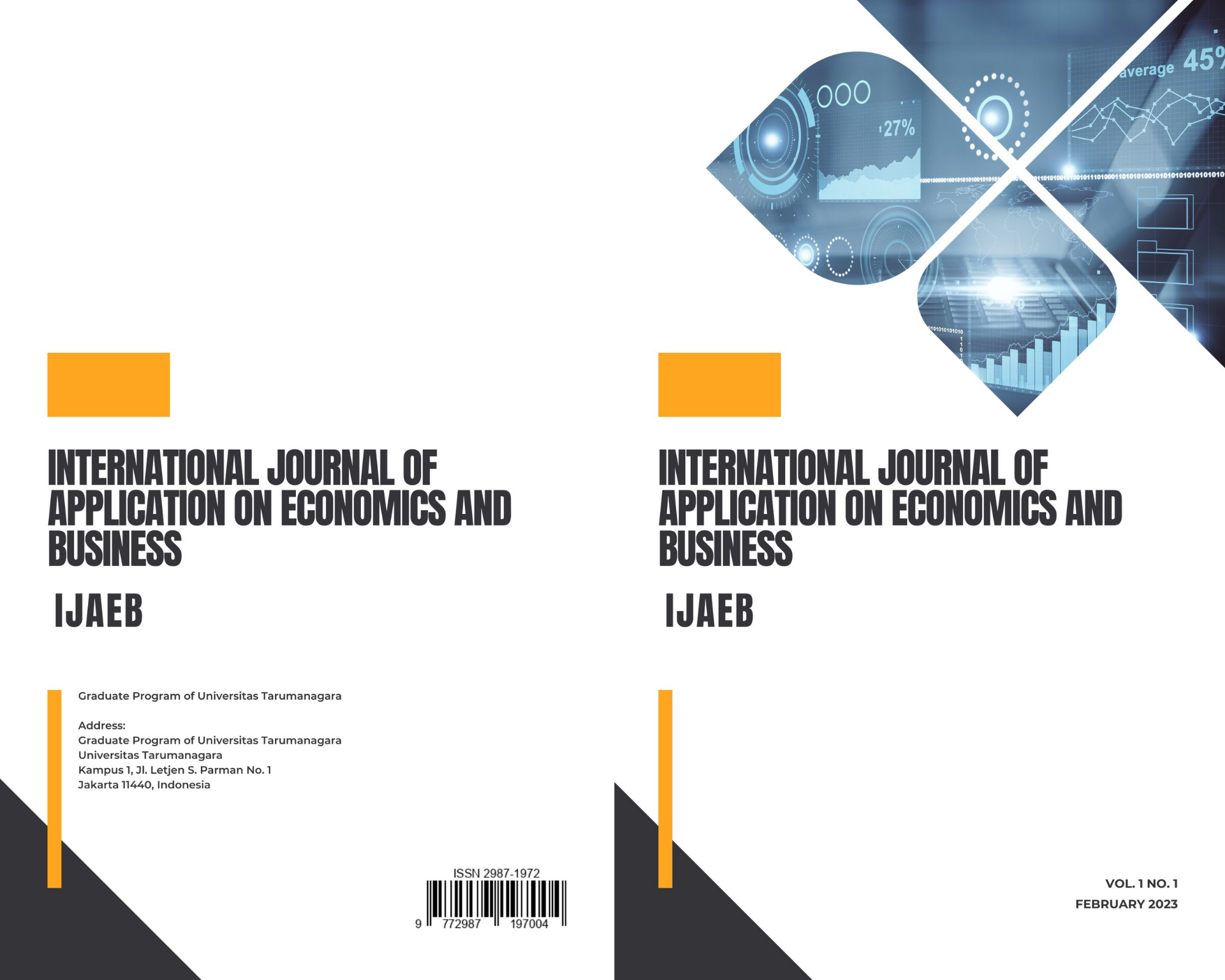The Effect of Entrepreneurial Knowledge on Entrepreneurial Intention with Perceived Desirability, Perceived Social Norms, and Perceived Feasibility as Mediating Variable
Main Article Content
Abstract
This study was conducted to determine the effect of Entrepreneurial knowledge on perceived desirability, perceived social norms and perceived feasibility and their impact on entrepreneurial intention. This study uses the main theory of the theory of the theory of planned behavior. The research method chosen is a quantitative research method. The data processing method used is partial least squares. The results show the Entrepreneurial knowledge affects perceived desirability, entrepreneurial knowledge affects perceived social, Entrepreneurial knowledge affects perceived feasibility, perceived desirability affects interest in entrepreneurship. Perceived social norms affect interest in entrepreneurship, perceived feasibility does not affect interest in entrepreneurship. Perceived desirability mediates the effect of entrepreneurial knowledge on entrepreneurial interest. Perceived feasibility does not mediate the effect of entrepreneurial knowledge on entrepreneurial interest.
Article Details

This work is licensed under a Creative Commons Attribution-NonCommercial-ShareAlike 4.0 International License.
This journal provides immediate open access to its content on the principle that making research freely available to the public supports a greater global exchange of knowledge.
IJAEB by Graduate Program of Universitas Tarumanagara is licensed under a Creative Commons Attribution-NonCommercial-ShareAlike 4.0 International License.. Permissions beyond the scope of this license may be available at https://journal.untar.ac.id/index.php/ijaeb
References
Kisubi, Moses & Bonuke, Ronald & Korir, Michael. The Impact of Entrepreneurship Education and Entrepreneurial Attitude on Entrepreneurial Intentions among Undergraduate Students in Uganda, 2021Journal of Management and Business Review, 2021, 23. 1-15. DOI: https:// doi.org/10.1142/S1084946711001768
Putra, B.A., Tridayanti, H., Sukoco, A. The Role of Entrepreneurship Education in Cultivating Student’s Entrepreneurial Intention: A Theory of Planned Behavior Approach. International Journal of Entrepreneurship and Business Development, 2018, Volume 1 (2). DOI: https:// doi.org/10.29138/ijebd.v1i2.555
Sugiyono. Metode Penelitian Kuantitatif, Kualitatif, dan R&D. (2018), Bandung: Alfabeta.
Ghozali, Imam. Aplikasi Analisis Multivariate dengan Program IBM SPSS 25, 2018, Semarang: Penerbit Universitas Diponegoro.
Yousaf, U., Shamim, A., Siddiqui, H. and Raina, M. Studying the influence of entrepreneurial attributes, subjective norms and perceived desirability on entrepreneurial intentions, Journal of Entrepreneurship in Emerging Economies, 2015, Vol. 7 No. 1. DOI: https://doi.org/ 10.1108/JEEE-03-2014-0005.
Al-Mamary, Yaser Hasan Salem, M. Abdulrab, M. Alwaheeb, Naif. Factors impacting entrepreneurial intentions among university students in Saudi Arabia: testing an integrated model of TPB and EO. Education and Training, 2020, 62. 779-803. 10.1108/ET-04-2020-0096. DOI: https://doi.org:10.1108/ET-04-2020-0096
Sudarmaji, Eka & Munira, Mira & Subhan, Nuruddin. Perceived Desirability and Feasibility on Entrepreneurial Intentions for Indonesian Young Digital Talent in Business. Indian Journal of Mathematics, 2019, 15. P: 1-10. DOI: https://doi.org/10.9790/5728-1503010110
Purusottama. Entrepreneurship Preference among University Students: An Evidence of Entrepreneurship Education Program. Jurnal Dinamika Manajemen, 2019, Vol 10 (2). DOI: https://doi.org/10.15294/jdm.v10i2.21066
Dissayanake, D. M. N. S. W. The Impact Perceived Desirability and Perceived Feasibility among Undergraduate Students in Sri Lanka: An Extended Model. The Kelaniya Journal of Management, 2013, 2(1), pp.33-57. DOI: https://doi.org/10.4038/kjm.v2i1.6543
Wannamakok, Wisuwat & Chang, Yu-Yu & Täks, Marge. The Relationship between Institutional Environments and Entrepreneurial Intention in Estonia: Mediating Roles of Desirability and Feasibility. Entrepreneurial Business and Economics Review. 8, 2020, P: 111-126. DOI: https://doi.org/10.15678/EBER.2020.080206
Buana, Yud. Mapping The Phenomenon of Students’ Entrepreneurial Intention. Binus Business Review, 2016, Vol 7 (2). DOI: https://doi.org/10.21512/bbr.v7i2.1745
Bui, T. H. V. Determinants Influencing Entrepreneurial Intention among Undergraduates in Universities of Vietnam. The Journal of Asian Finance, Economics and Business, 2020, Volume 7. DOI: https://doi.org/10.13106/jafeb.2020.vol7.no7.369
Mohammadi, Parisa. A Conceptual Model of Social Entrepreneurial Intention. International Journal of Economics, Business and Management Research, 2020, Vol. 3, No. 02. DOI: https://doi.org/10.1108/APJIE-12-2016-007



